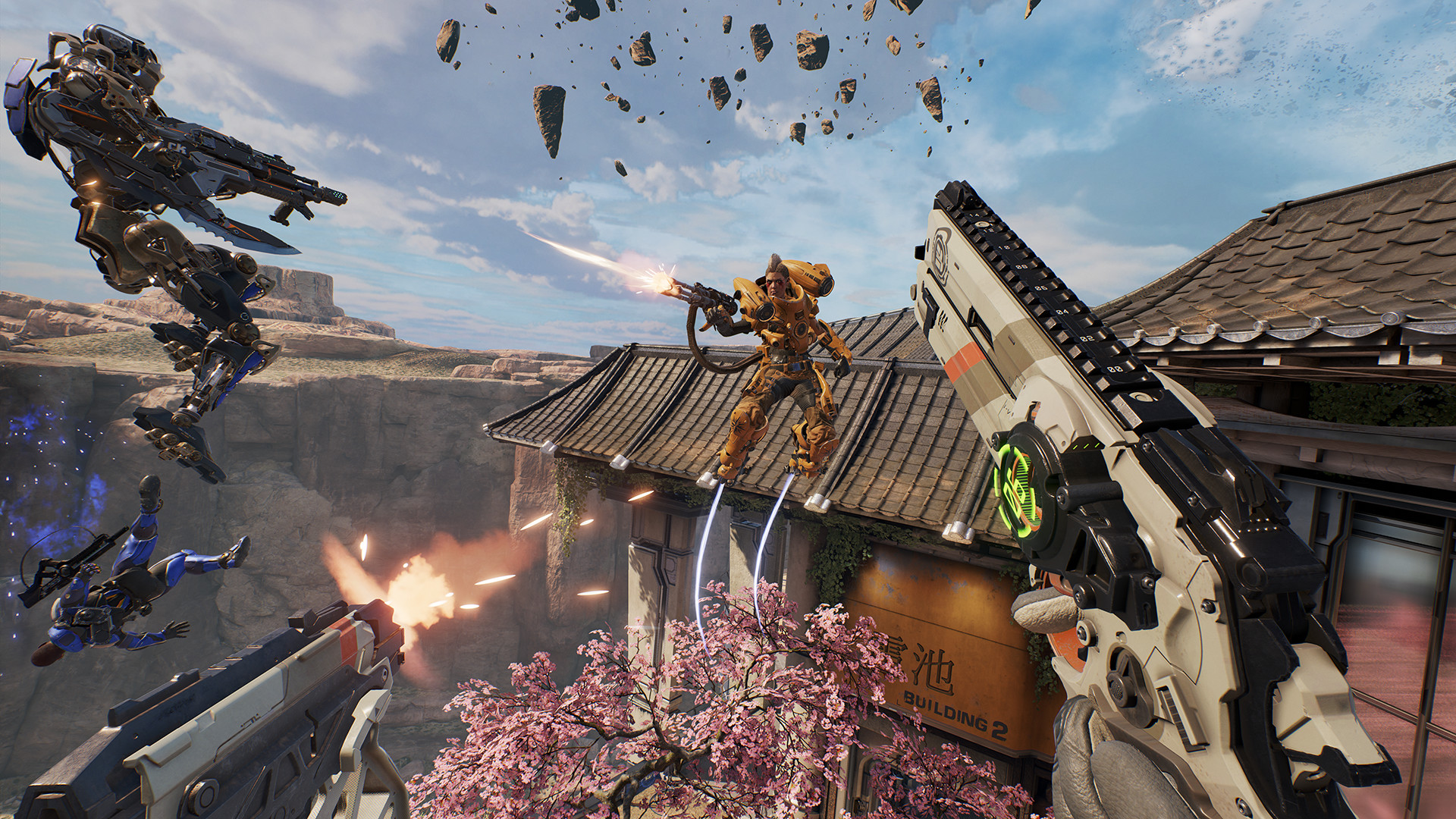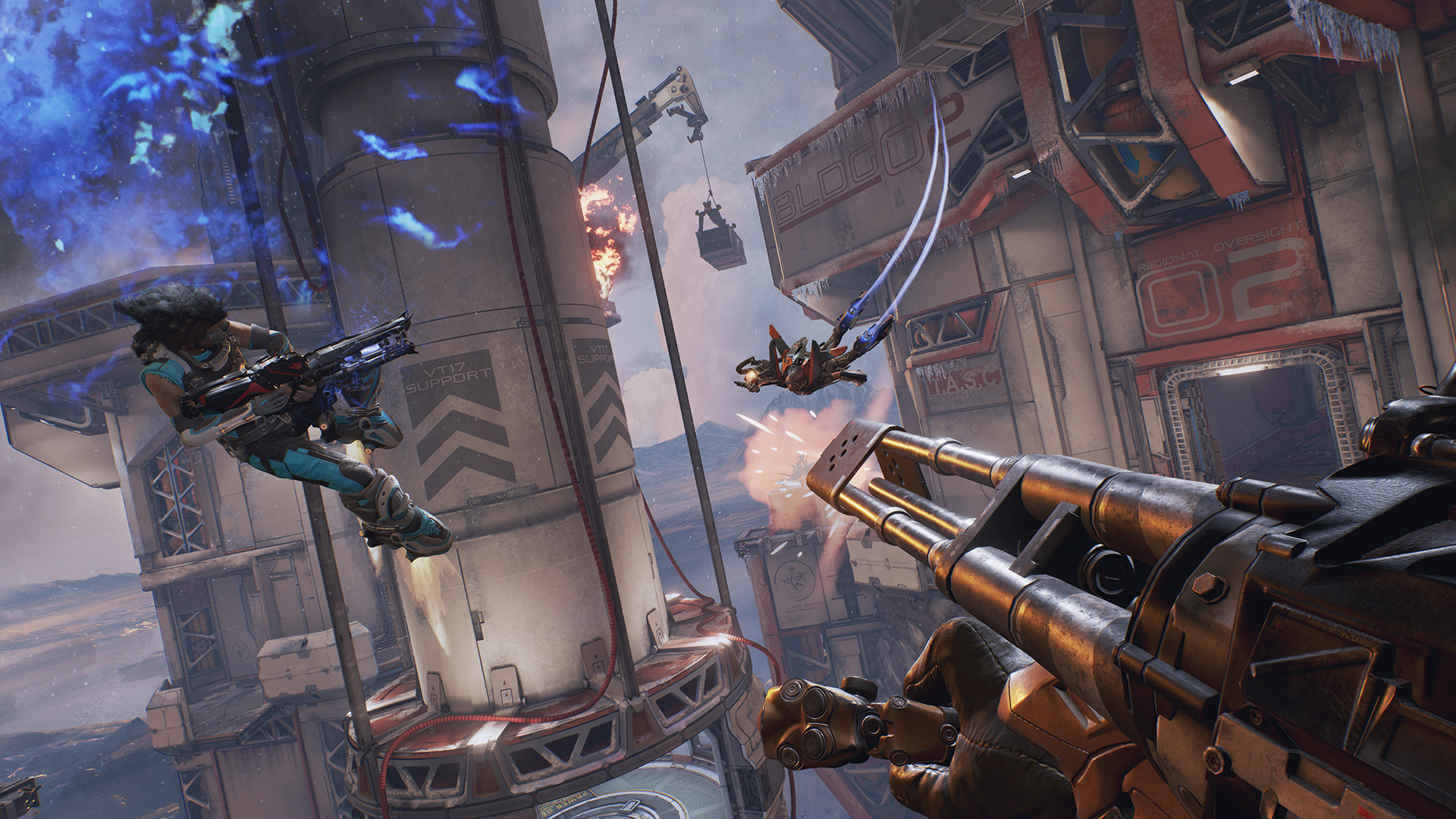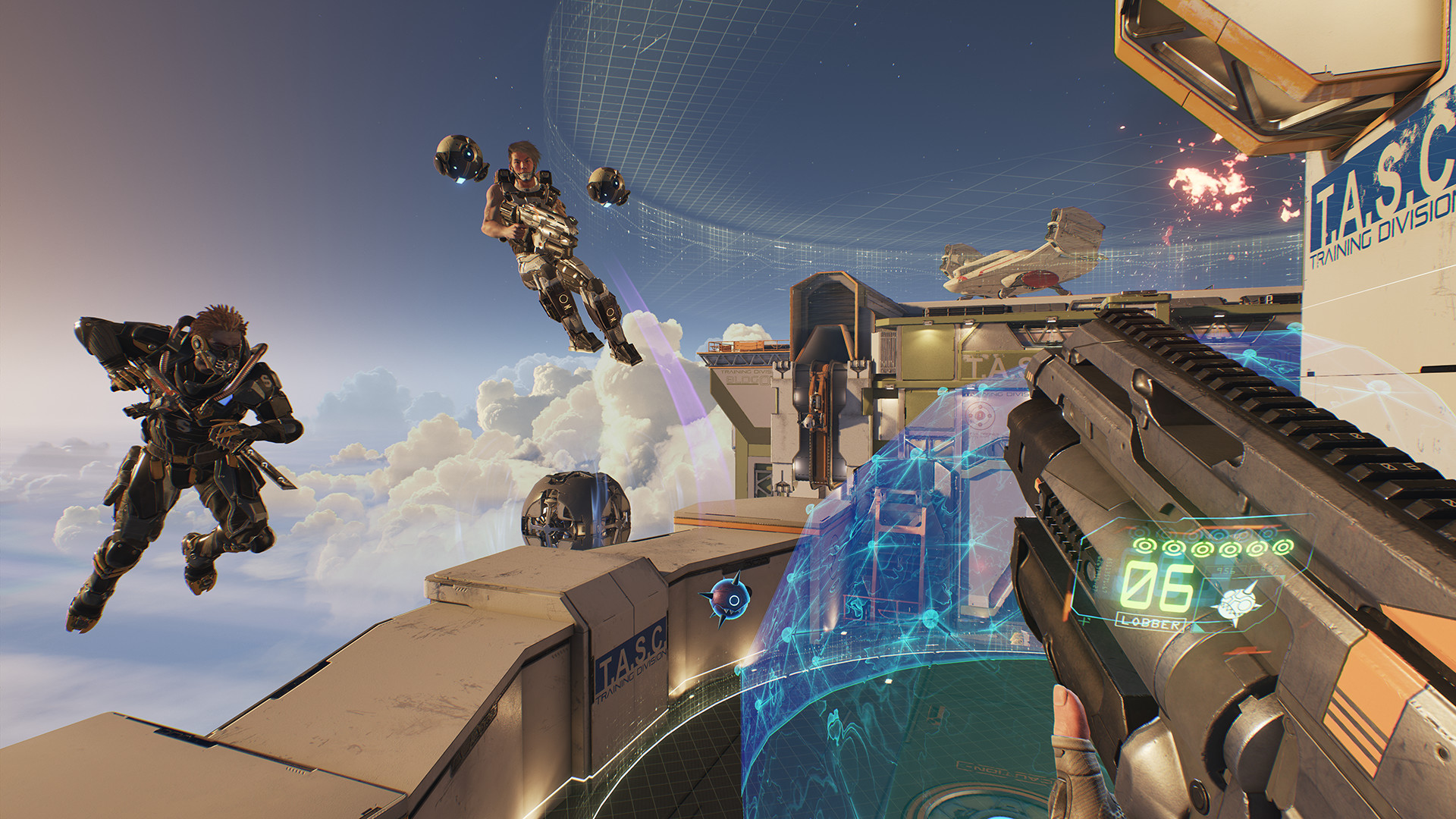We talked about the situation around LawBreakers with Dan Nanni, BossKey’s lead designer.
In early August, the worldwide release of the multiplayer shooter LawBreakers took place. The project attracted the attention of the press even before the release. The game was developed by BossKey Studio, one of the founders of which is Cliff Bleszinski, the leading designer of the Unreal and Gears of War series. The studio was co-founded by Arjan Brussee, who led the work on the Killzone series.
Despite the big names of the founders, the project, which was positioned as a “heroic shooter” (a project in which players choose characters with very different abilities and capabilities to play with each other), failed to attract the attention of players at the start. Moreover, in recent months he has been constantly losing his audience.
At the 4C: St.Petersburg conference, we talked with the project’s lead designer, Dan Nanni, who was previously responsible for design in projects such as Star Wars: Battlefront II (2005), Killzone 3 and Battlefield 4, about possible reasons for the lack of interest in the game from users.

Dan NanniAlexander Semenov, Senior Editor App2Top.ru Q: Were you prepared for the fact that the market would be oversaturated by the time LawBreakers came out?
Dan Nanni, BossKey Lead Designer: We knew we were going into an oversaturated market, we knew it would be a problem. But we had no choice, we couldn’t delay the release any longer. We couldn’t tell the team, “Please don’t release the game for another six or seven months.”
Let’s be honest: there is no good time to release a game if it is the first title of a new company. Despite the fact that Cliff is very respected, the company has no authority. We don’t have an audience that tracks our projects. So, no matter what, any moment is not the right one.
However, we knew we had to get out before blockbusters like Destiny 2, Call of Duty: WWII and Star Wars: Battlefront II started appearing. If these games were on sale before ours, then that’s it, we would have to wait.
So, yes, the situation in terms of time was risky, plus, three years of development were [pressed]… There was a feeling that, “It’s time, it’s time to launch the game.”
But you didn’t know about PLAYERUNKNOWN’s BATTLEGROUNDS, did you?
Dan: We didn’t know. The game was a surprise for many.
Once you heard about the game, you could say something like “Oh, yes, it’s going to be a fun game.” But the project turned into a colossus very quickly. This is very cool for its developers, but the success of the Bluehole project definitely takes people away from our game, and also takes part of Twitch with it.
You look [at the market] and think, “Maybe Twitch will help us sell the game?”. But so many streamers are tracking PLAYERUNKNOWN’s BATTLEGROUNDS, because everyone wants to watch it!

And they also want to play it.
Dan: Yes, all eyes are on another product.
But do you think that if there was no other game, the situation with LawBreakes would be better?
Dan: Obviously, if there were no other competitors in the genre of heroic shooters (to which Dan refers Overwatch – approx.editors), it would be easier for us to attract users who would like to try something new.
But, as I said, it’s hard to get into the industry today. There is already a question here: who [with the new concept] comes first.
This is true today for any genre. Speaking of Overwatch, how much did it affect LawBreakers?
Dan: We play all our competitors. And if we talk about the gameplay, she had this kind of influence on us: “So, since they did it, of course we don’t want to do it.”
The other day I had a conversation with the game designer of one shooter, which is currently in development. He told me that they changed a lot in the game to make it more like Overwatch. I asked him: “Why? You have a unique gameplay.” He agreed, but noted that only a small part of the audience appreciates this type of gameplay, and most users play Overwatch and are not ready for another type of gameplay.” What do you think about this approach in the context of what you said earlier?
DAN: I think this is a business approach that has a right to exist. This is one of those decisions that you make, more based on business objectives.
I believe that most developers in the industry want to create something new and unique. However, the video game industry is a business. And if so, the question is always raised: what is the philosophy of your company and what do you want from the company as a business to get?

And how do you answer this question?
Dan: Our company… We want to do our own thing.
When we first started development, we [were the first] to make a heroic shooter. It just so happened that a lot of people were moving in this direction. Of course, when we found out about it, it upset us, but we continue to move on.
And Nexon (the publisher of the game) gives you this opportunity. But how much time does the project have? How long is the publisher willing to wait for good indicators from LawBreakers?
Dan: We’re still working with them.
We shared with the players the game development plan until the end of the year.
This is one of those things that we use to tell our audience that we are continuing to work. And we are sketching out what will appear in the game next year. We know what we want to do in the game and are working on it.
Nexon believes that we will be successful in the long term. That’s why they still want to work with us on the game.
As long as the game has an audience, as long as we can bring people back and bring new ones so that the project grows, we have a product that is worth supporting. But if the audience says “No, we’ve had enough,” then obviously we’ll have to rethink our strategy.

I didn’t just ask about Nexon. We are all aware of the history of Battleborn. Not a bad game with good graphics and interesting gameplay. Overall, polished. But it was recently closed a year after its release. Moreover, on Steam, many players are wondering why. And here you are already wondering: will a similar story with LawBreakers happen again?
Dan: They spent a lot more money than we did. You know, a bigger team, a lot of marketing, a visit to PAX, a big stand, big tournaments. There were large financial injections behind all this. And it is much more difficult for them to compensate for all this than it is for us to recoup the costs of the game. It is easier for us to pass this threshold [of payback]. From this point of view, we can afford to spend a little more and more so that there is growth. It is easier for us to overcome the thresholds. One by one. And continue until people start coming and staying for a long time.
In the AAA industry, if the game does not achieve its goals in two weeks after release, then that’s it. She’s finished. But Rainbow Six Siege broke the trend. Its developers stated: “Okay, we had weak results in the beginning, but we will continue to release content.” And now the project is constantly growing. Everything can work out if you have good support and the right team.
I hope the same story happens to you.
Dan: That would be great.
Thanks for the interview. And good luck with the game.
